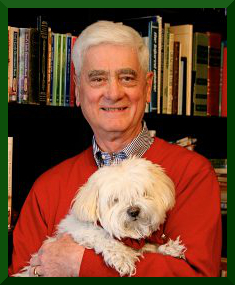Earlier this summer Mary and I spent the weekend in the Midwest where we attended our grand daughter’s high school graduation. While there I learned to really appreciate our son-in-law, David.
The graduation celebration was dampened because of a tragedy which began a week before. Our daughter, Maura, and her husband are on the faculty of a major Catholic University in this city. Over the Memorial Day week end, Dan, one of the many student they both knew and loved, was involved in a canoeing accident. Fortunately, none of the students with him had been using alcohol.
Dan had just finished his third year in pre-med and as a 4.0 honor student had already been accepted to medical school. His fiancee, also a soon to be senior, had been a high school classmate of our grand son. While in college she worked part time for David. The tragedy began Memorial Day weekend when Dan was injured in a boating accident. He was hospitalized with a fractured neck and was paralyzed from the mid-chest down.
David visited him the day after he was hospitalized and every day since. On his first visit he noted that Dan was awake and talking, aware of his paralysis but happy to be alive. “That’s the kind of kid he is!” David reported. David continued to visit Dan and offered comfort to him, his family, and to his fiancee.
I wish the story got better from there on, but it didn’t. Dan developed a rare condition called rhabdomyolysis which causes the muscles and other soft tissues to swell to the point that nourishing blood can not enter them. In an attempt to relieve this swelling and keep his muscles alive he had to have surgery. But things went from bad to worse and ended with Dan’s death several days later.
As a physician I know how difficult it is to visit a terminally ill patient. First there is the feeling of helplessness, and then the anger that we scientists have not been able to concur death. Then there is the “I don’t know what to say” feeling. These feelings and others often lead to shorter visits by the doctor who ends up spending too little time with the family.
Research shows that the number of visits to terminally ill patients by physicians, nurses, family members, and friends decreases as patients come closer to death. This at a time when they and their families need people yet these visits often don’t occur.
But David continued his visits. These visits were important to the family and to Dan, while he was conscious. I know they were not easy for David, visiting the sick never is; his reporting on Dan’s progress, or lack of, brought tears to his eyes, to Maura’s, to Mary’s, and to mine as well.
David’s dedication to Dan, his family, and especially to Dan’s fiancee made these visits more than duty, they were prayer. What we pray for and how we pray really determines who we are. David’s actions revealed his character.
Here is a man who is not afraid to be compassionate, not afraid of his emotions, nor embarrassed by his devotion to others’ well being; here is a man willing to be present when the chips are down. Here is a man we can emulate!
We need more men like David; we all need to be more like him.
I, for one, will try to be more like David. Will you?
